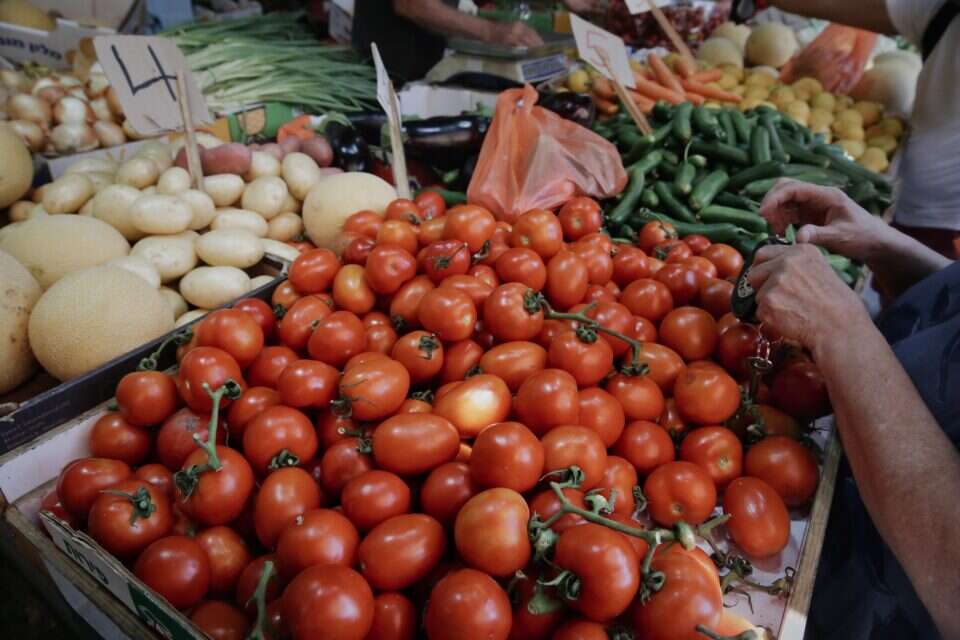Have you also recently been avoiding buying frozen vegetables and fruits, let alone eating them?
It makes sense, in light of the snow frost crisis, the animals and other vegetables, but that's not why we gathered this time, but rather to talk about the world of fresh vegetables and its many benefits.
Moran Klizi, a nutritionist at the "Collect Israel" organization, which focuses (among other things) on reducing and wasting food, and on shady vegetables in particular, has collected some tips for you that will help preserve them for a long time and enjoy them more instead of the sad feeling of throwing them in the trash because you "missed out."
Buy correctly: it is recommended to buy vegetables and fruits without defects and those that have not been exposed to the sun for a long time.
Choose not very ripe vegetables: when you plan to store for a relatively long period of time, it is recommended to choose less ripe fruits and vegetables, which are usually firmer.
This way they will last longer.
Wash before eating.
Apples at a vegetable and fruit stand, photo: Oren Ben Hakon
Arrange the shopping bag correctly: when purchasing, it is recommended to place the more "delicate" vegetables on top of the rest of the shopping in order to avoid crushing damage.
Wash fruits and vegetables before eating them: as a rule, it is not advisable to wash fruits and vegetables before putting them in the refrigerator, but only before using them.
Only if the vegetable/fruit is dirty, should you wash it under running water, but make sure to dry it well before putting it in the refrigerator.
Before use, wash the vegetables and fruits well in running water.
Cutting before eating: It is better to store vegetables and fruits whole, because in the cutting process there is a loss of vitamin C. It is recommended to cut them just before eating.
Freeze large quantities: If you bought a large quantity of vegetables beyond your need, you can cut them, put them in bags and freeze them.
Root vegetables and vegetables that do not contain a large amount of liquid, such as sweet potato, carrot, pumpkin, sweet potato, broccoli and cauliflower, are an excellent example of vegetables that retain their appearance and nutritional values when frozen, so it is recommended to cut them in advance and freeze them.
Correct storage in the refrigerator: Store the vegetables and fruits in separate drawers, since during ripening the ethylene gas emission is slightly different between them.
The gas can lead to faster ripening of vegetables, which causes acceleration of their decomposition.
Note that botanically a tomato is a fruit, so store it separately from cucumbers.
Do not attach them to the sides of the refrigerator.
A vegetable stand in Mahane Yehuda market, photo: Oren Ben Hakon
In addition, the vegetables and fruits should be stored in the bottom drawers of the refrigerator, and you can also place a paper towel at the bottom to absorb excess moisture.
Regarding delicate herbs, you can wash, dry and wrap them in a damp paper towel, and place them in the refrigerator drawers so that they do not lose moisture and last longer.
Also, do not stick vegetables to the sides of the refrigerator as these are colder areas - which can cause them to freeze.
It is also not advisable to store them in sealed containers, as they cause the accumulation of moisture and liquids that accelerate spoilage.
The satisfying soup that will free up your fridge
Are you stuck with overripe vegetables and fruits?
Precisely for this purpose, at "Collect Israel" they prepared for us a recipe for overripe tomato soup with leftover white rice - which will not only satisfy you, but also make you use up the ingredients before they spoil.
Tomato soup with rice, photo: Courtesy of Leket Israel
Recipe for tomato soup with white rice
Ingredients:
2 peeled and diced carrots
1 large onion cut into cubes
2 stalks of celery, peeled and cut into cubes
2 garlic cloves
2 tablespoons of tomato paste
5 ripe tomatoes cut into cubes
8 glasses of water
About 10 stalks of fresh coriander (optional)
Half a cup of uncooked rice or a cup and a half of cooked rice
1 tablespoon of sugar
Dry coriander, black pepper, sweet paprika and salt
2 tablespoons of oil
Instructions:
1) Fry the onion in the pot with the oil and add the carrot, celery and garlic.
After 2 minutes, add the tomato paste - and mix.
2) Add the fresh tomatoes and cover the pot lid.
After about 5 minutes of cooking, add the water and the rice.
3) Continue to cook on low heat for about half an hour.
Then, add the spices and sugar.
Taste and adjust the seasoning according to your taste (the soup should be sweet and sour).
4) Cook for another 15 minutes, and towards the end add the chopped cilantro.
Moran Klizi is a nutritionist at the "Collect Israel" organization.
were we wrong
We will fix it!
If you found an error in the article, we would appreciate it if you shared it with us

